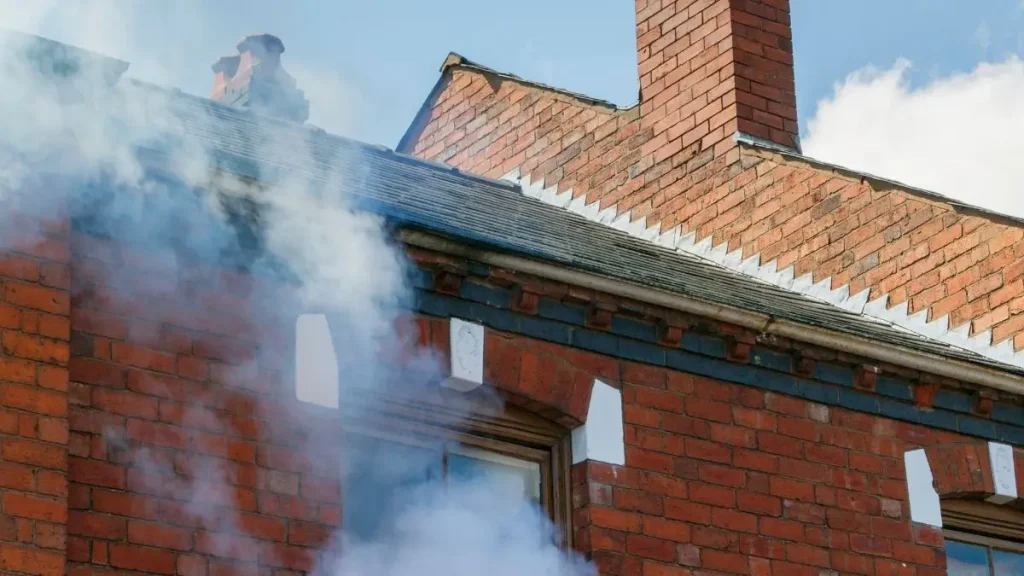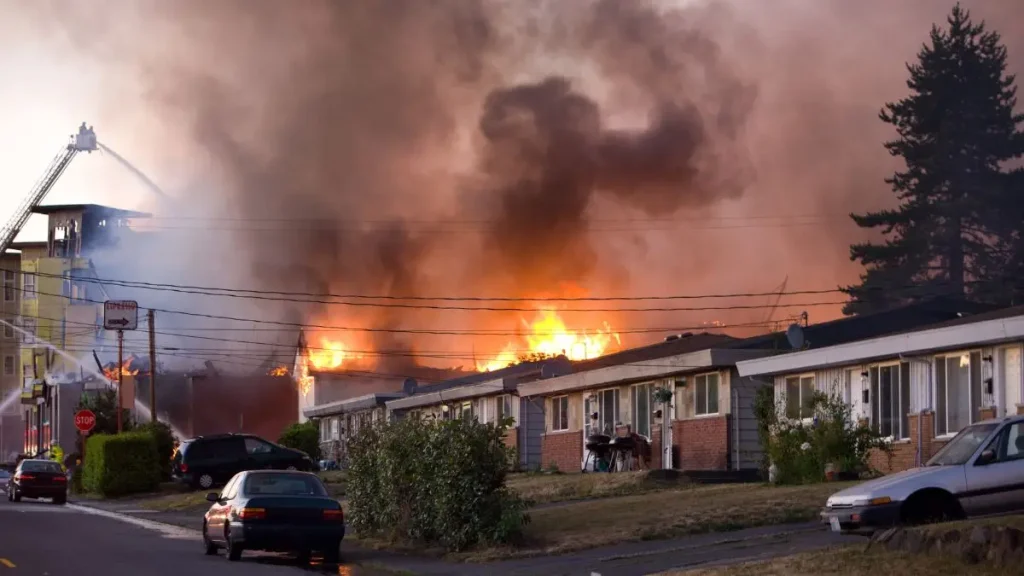Grasmere House Fire Results in Charges for Local Man
I still remember reading the first police note about it — 5:45 on a cold Saturday morning, 23 August 2025. A call came in from Domenics Place, a quiet street in Grasmere, and within minutes, flames had already torn through a house under renovation.
Fire and Rescue NSW crews rushed to the scene, battling what they later described as a fierce, fast-moving blaze. The house was empty at the time, so thankfully no lives were lost. But the property itself? Almost completely gutted — a painful sight for any homeowner, let alone in a suburb where houses are often worth millions.
What struck me while scanning the early coverage was how bare-bones the reporting felt. Most outlets mentioned only that “the home was unoccupied” and “there were no injuries.” What they didn’t explore is what that actually means for the story: why an empty property can be especially vulnerable to fires, and why investigators treat such cases with extra caution.
If you’ve ever walked past a half-renovated or locked-up house in your area, you’ll know what I mean. These places can attract attention — sometimes from the wrong people. That’s why this fire immediately raised eyebrows, not just for locals but also for detectives.
What’s your first thought when you hear about a blaze in an unoccupied house? Does it feel like bad luck, or do you assume something more sinister.
The Police Investigation

After the smoke cleared, detectives from Camden Police Area Command moved quickly. They sealed off the property and treated it as a crime scene — not just another fire, but something suspicious enough to warrant forensic work.
According to Mirage News, police inquiries led them beyond the charred remains in Grasmere. Days later, officers pulled over a vehicle in a Bankstown car park on Rickard Road. Inside was a 29-year-old man who, until that point, hadn’t been connected publicly to the fire.
That arrest was a turning point. It showed this wasn’t just about a house catching fire — it was about tracking someone believed to have deliberately lit it. And for the community, it shifted the story from shock over destruction to a demand for accountability.
And in some cases, the damage is even more devastating. In Las Vegas, a man was found dead inside a house fire, showing how tragic these events can become when people are caught inside.
Charges Laid Against the Suspect
Once in custody, the case widened. The NSW Police statement confirmed the man wasn’t just facing an arson charge. Officers allegedly found prohibited drugs in his vehicle. That discovery stacked the sheet of offences against him:
- Damage property by fire (arson)
- Supply prohibited drug
- Possess prohibited drug (two counts)
- Driving during disqualification period
For readers like you and me, the detail matters. It’s not only about a fire anymore. It’s a picture of someone allegedly involved in more than one serious crime — and that raises bigger questions about what really led to that morning blaze.
Court Proceedings So Far
By September 3, the man stood before Bankstown Local Court. Bail was refused, which tells us two things: the charges are serious, and the risk of release was considered too high.
If you’ve ever followed a local court case, you know how slow and procedural these steps can feel. But each one matters.
For a charge like arson, potential penalties in NSW include long prison terms — and when drugs are added to the mix, the outcome can shape not just one man’s future, but also the safety message sent to the wider community.
Sadly, this isn’t the first time fire has turned ordinary homes into breaking news. In Iowa, three teens lost their lives in an early morning house fire, reminding us how quickly these situations can escalate.
Community Impact & Safety Takeaways
What often gets lost in straight news reporting is the ripple effect on locals. Grasmere isn’t a high-crime area. It’s a place people move to for peace, bigger homes, and family security. A fire like this — especially in an empty property — rattles that sense of safety.
For homeowners, there’s also the insurance angle. Renovating or leaving a house vacant can complicate policies. And when arson is suspected, insurers dig even deeper. It’s a reminder for anyone reading this: if you own or rent a property, check your cover.
Most of all, it’s about awareness. An empty house can become a magnet — for vandals, squatters, or worse. Keeping neighbors informed, securing renovations, and reporting unusual activity can make a difference.
Local updates on fires and safety alerts often spread faster through community WhatsApp groups. If you like staying ahead of such news, joining a reliable WhatsApp channel can be a practical step.
How to Report Suspicious Activity

Police made it clear: information from the public is often what breaks these cases. If you ever see something off — whether it’s strangers hanging around a boarded-up house or odd activity late at night — don’t ignore it.
You can call Crime Stoppers on 1800 333 000 or file a report online at nsw.crimestoppers.com.au. Every call is treated confidentially.
One important note from police: don’t report tips on social media. It risks alerting the wrong people and can damage an investigation.
We’ve seen this ripple effect in other places too — like when a Wayne Township home was badly damaged by fire, leaving locals shaken but also more alert about prevention.
Understanding Arson Cases in NSW
When you hear “arson,” it can sound like just another headline crime. But in NSW, the law treats it as one of the most serious property offences you can face. Setting fire to a building — even if no one is inside — carries long prison terms, often stretching beyond ten years depending on the damage and intent.
Judges don’t just look at the flames; they weigh community risk, the cost of emergency resources, and the potential for lives to have been lost.
What’s striking about the Grasmere case is how it mirrors a wider pattern. In NSW, arson is rarely a “standalone” offence. It often shows up alongside drug charges, stolen vehicles, or disputes that spill into criminal damage.
Police and legal experts point out that fires are sometimes used to send a message, to destroy evidence, or to cover other crimes. That’s why investigators don’t stop at the burnt-out shell of a house — they dig into the full life of the suspect.
For everyday homeowners, there’s a real lesson here. An empty or renovating property isn’t just vulnerable to weather or neglect — it can become a soft target. The Grasmere fire is a reminder that securing your home, maintaining insurance, and staying alert to unusual activity isn’t paranoia, it’s prevention.
If this were your street, how would you want your neighbors to respond — speak up quickly, or mind their own business?
Final Thoughts
The Grasmere house fire isn’t just another crime report — it’s a story about how fragile our sense of safety can be. One empty home, one early morning blaze, and suddenly an entire suburb is left asking: could this happen here?
For me, the real takeaway is simple — you and I can’t control everything, but staying aware, securing our spaces, and speaking up when something feels off can make all the difference.
What’s your biggest concern when you hear about cases like this — the crime itself, or the thought that it could easily be your street next time?
For more stories like this, check out our Home Incidents coverage.
Disclaimer: This article is based on publicly available reports and police statements. It is intended for informational purposes only, not as legal or official advice. Details of the case may change as the investigation and court proceedings continue.


